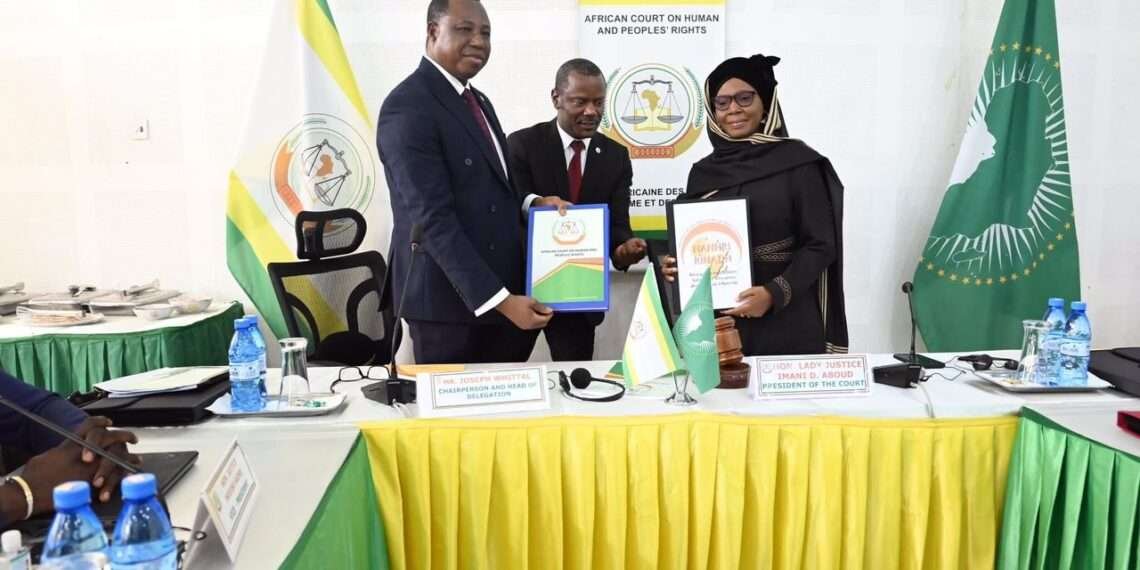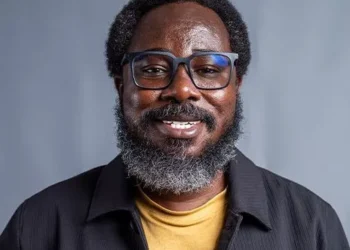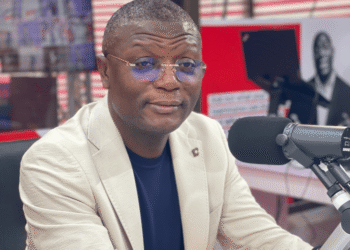In a significant development aimed at enhancing the protection of human rights across Africa, the African Court on Human and Peoples’ Rights (AfCHPR) and the Network of African Human Rights Institutions (NANHRI) have signed a Memorandum of Understanding (MoU). This strategic alliance seeks to build a stronger relationship and collaborative efforts between the two bodies, promoting human rights, the rule of law, and democratization on the continent.
The MoU was signed by Hon Lady Justice Imani Daud Aboud, President of the African Court, and Advocate Joseph Whittal, Chairperson of NANHRI and Ghana’s Commission on Human Rights and Administrative Justice. The signing ceremony took place at the commencement of the 73rd Ordinary Session of the Court held at its seat in Arusha, Tanzania.
In her remarks during the ceremony, Hon Justice Aboud emphasized the significance of the MoU in line with the Strategic Plan of the African Court (2021-2025). She highlighted that the partnership is a crucial step towards achieving common objectives in human rights protection, the rule of law, and democratization.
“This collaboration represents a crucial step forward in our shared mission to promote and protect the fundamental rights and freedoms of all Africans. We both reaffirm our commitment to strengthening our relationship and the African human rights protection system.”
Hon Lady Justice Imani Daud Aboud, President of the African Court
Reflecting on the progress since the initial aspirations of 2011, Justice Aboud added, “The MoU we are signing today brings us a step closer to realizing the dreams we had in 2011, to build a strong relationship to enhance the protection of human rights on the continent.”
Advocate Joseph Whittal echoed similar sentiments, noting the MoU as a testament to the unwavering commitment of both organizations to promoting and protecting human rights in Africa and beyond.
Framework for Collaboration

The MoU outlines a framework for collaboration between the two organizations which includes advocacy for the ratification of the Court Protocol, advocacy for the deposit of the Declaration by State Parties to the Court Protocol, capacity building of the network on litigation procedures and jurisprudence of the Court and follow up on implementation of the decisions of the Court.
“This is the beginning of what we believe to be a long-term relationship in which we will learn with and from each other through collaborative engagements on issues of mutual interest.”
“It is an opportunity to address shared concerns, identify common interests, foster greater understanding, and develop capacity to address issues of global concern such as climate justice, deepening democracy, and rule of law, as well as social inclusion and human development.”
Advocate Joseph Whittal, Chairperson of NANHRI and Ghana’s CHRAJ
Additionally, both parties have committed to leveraging their strengths to create reciprocal opportunities for legal and other professionals from both organizations to engage in exchanges and stay updated on each other’s activities.
The MoU is set for an initial period of five years, with an option for renewal, reflecting a long-term vision for sustained collaboration. This agreement marks a new chapter in the relationship between the African Court and NANHRI, paving the way for more coordinated efforts in tackling human rights issues across Africa.
By fostering a robust partnership, the AfCHPR and NANHRI aim to address common challenges and promote the protection of human rights more effectively. This strategic alliance signifies a shared commitment to advancing human rights, strengthening legal frameworks, and promoting democracy and social justice on the continent.
The signing of this MoU at the 73rd Ordinary Session of the Court not only symbolizes a milestone in the journey towards better human rights protection in Africa but also sets the stage for impactful collaborations and positive changes in the lives of millions of Africans.
As both organizations move forward, their combined efforts are expected to bring about significant improvements in the human rights landscape of Africa, ensuring that the fundamental rights and freedoms of all Africans are upheld and protected.
READ ALSO: Ukraine And Moldova Meet Criteria For EU Negotiations



















